Solid-state based sources of non-classical light
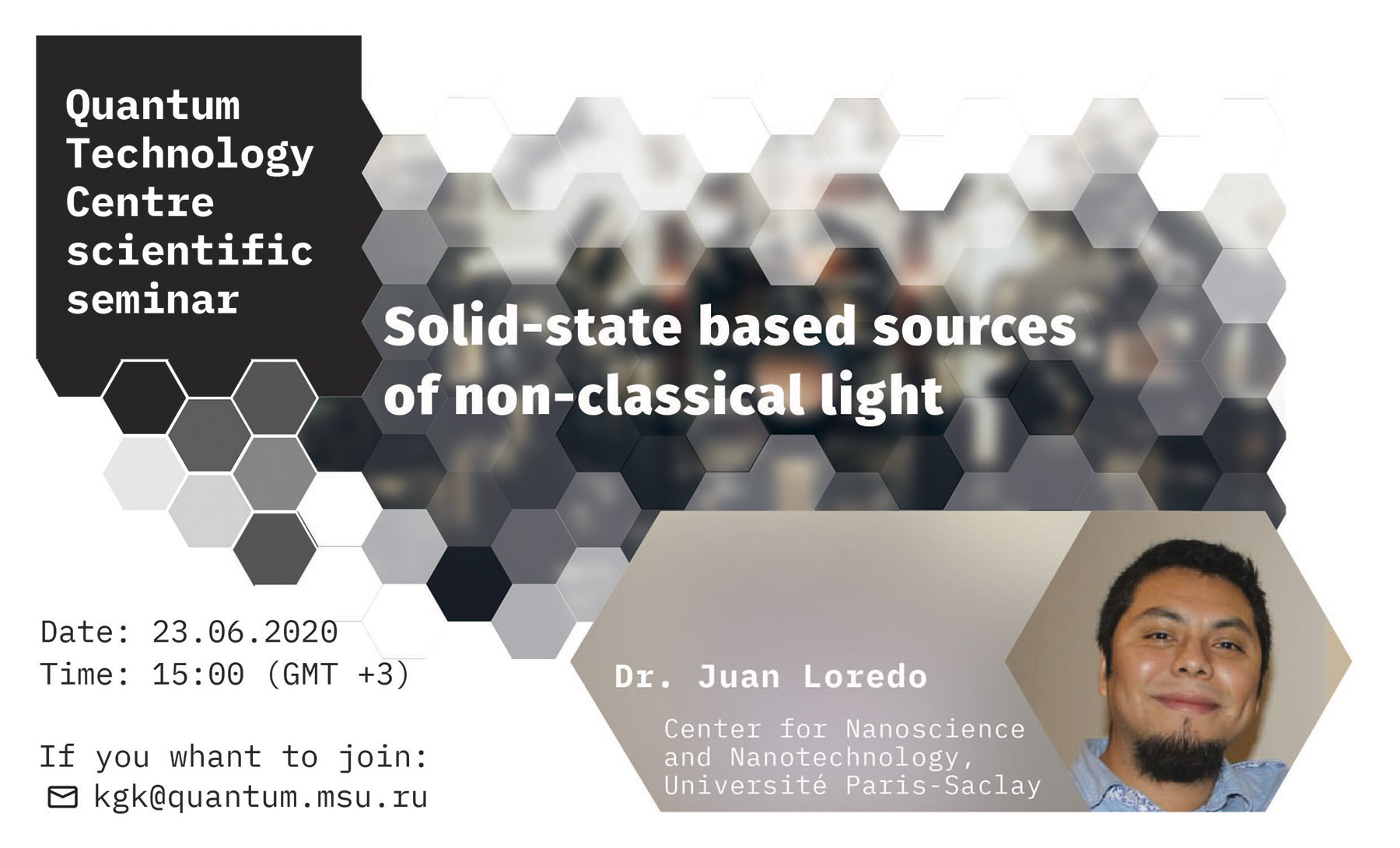
Generating non-classical states of light constitutes a primer goal in optical quantum technologies. In this talk, I will discuss our recent advances in the generation of various kinds of non-classical light. We exploit semiconductor quantum dots to create from efficient and indistinguishable multi-photon sources, to on-demand photon-number superposition states, as well as sequentially generated linear cluster states. In overall, I will describe how this solid-state based approach can enable larger-scale quantum photonics.
Quantum state engineering and tomography of high-dimensional spatial states of photons
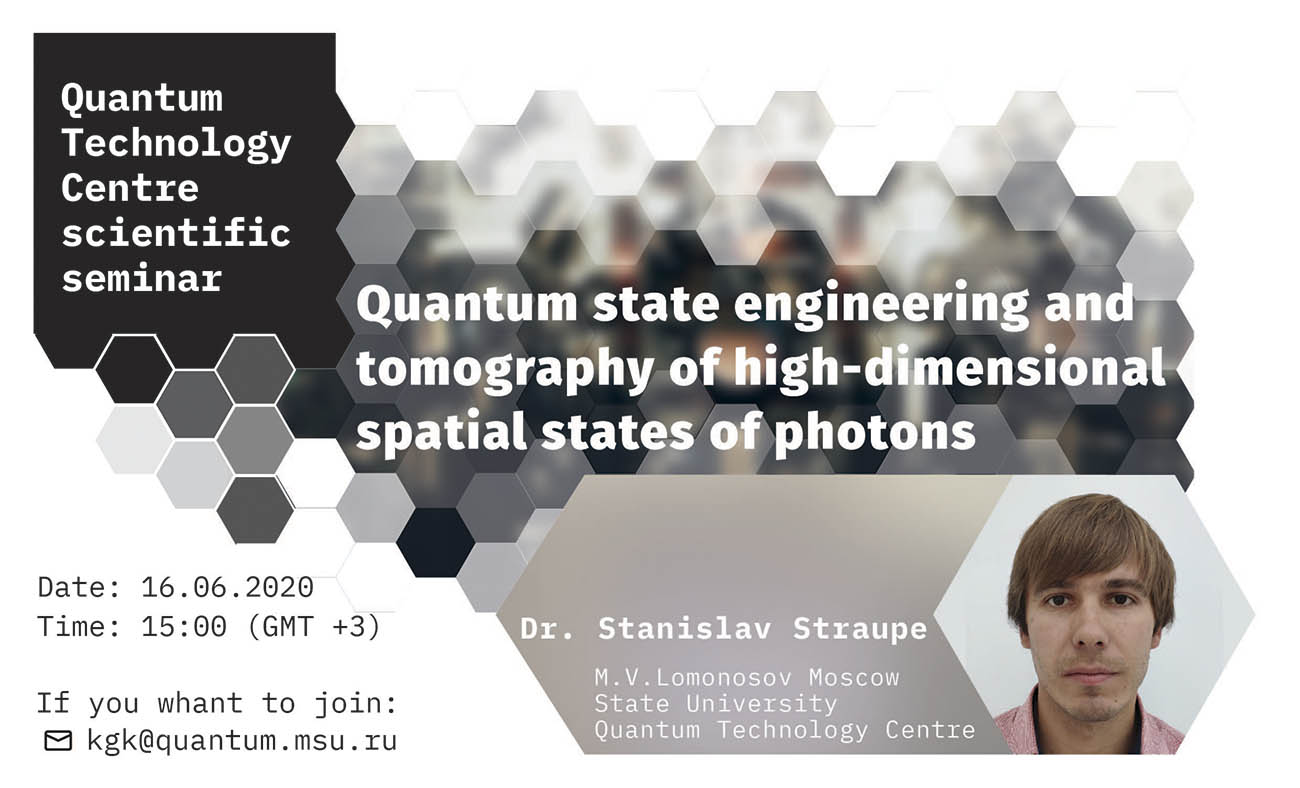
We will discuss several experiments studying high-dimensional entanglement in spatial degrees of freedom of photons generated in SPDC. We will see how one can engineer this entanglement using spatially structured pump beams. In particular, we will demonstrate the capabilities to tailor the dimensionality and shape of the generated states without any filtering or post-selection. Then we will discuss the applications of these high-dimensional spatial states in quantum information and show that they are an ideal testbed for quantum tomography. We will overview some experiments in adaptive tomography and application of machine learning techniques to quantum state and process reconstruction.
Linear optical platform for quantum computing in MSU Quantum technology centre
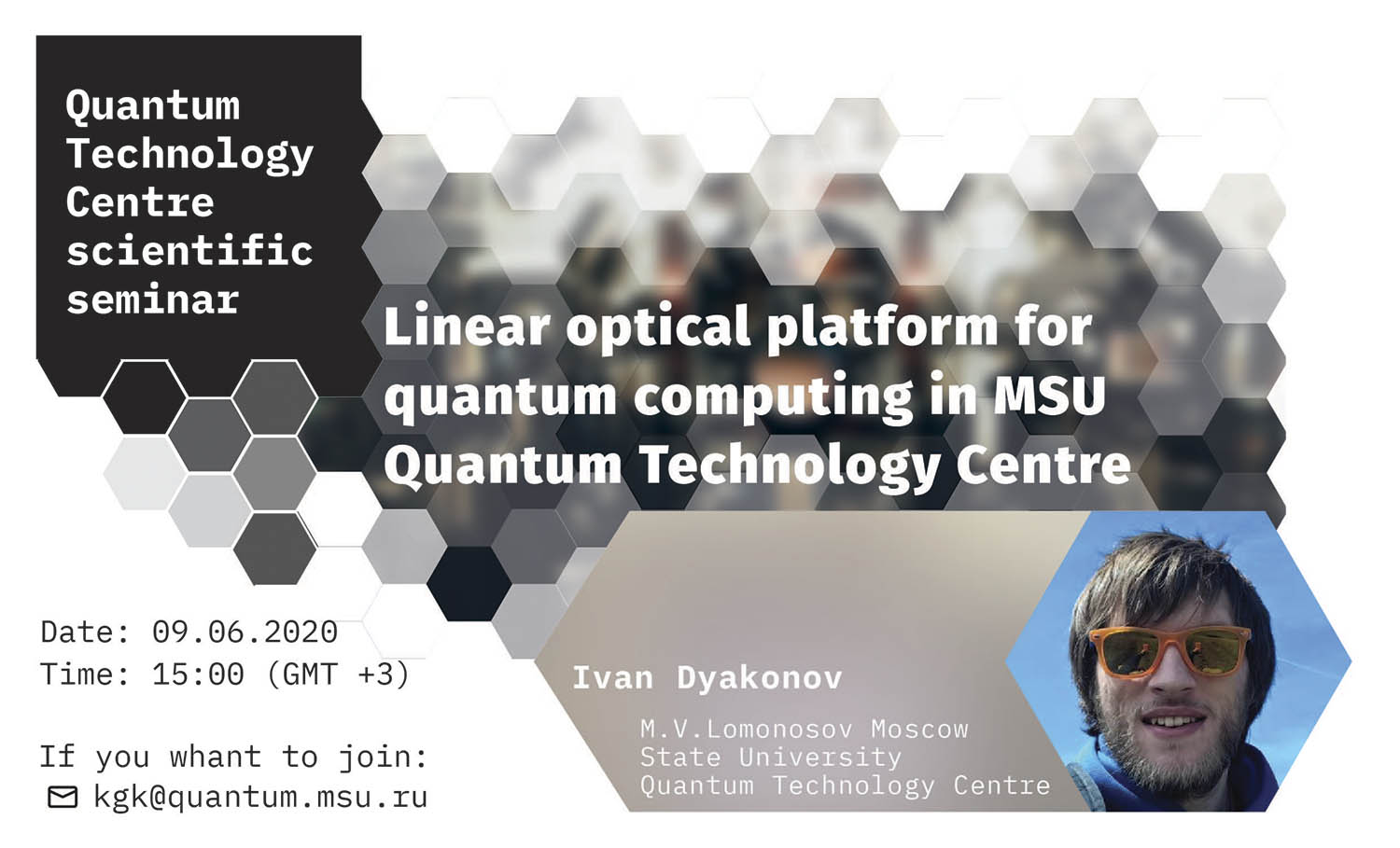
The talk covers recent advances of the Quantum technology centre research in linear-optical quantum computing. Firstly, we will discuss the technological approaches to fabrication of the linear-optical programmable interferometers developed in the lab and in the collaboration with FMN nanofabrication center. This topic also includes research on the interferometer architectures and design methods to achieve best possible performance of linear optical circuits. Secondly we will highlight our recent achievement in optimizing the linear optical circuit generating the entangled three-photon state - the 3-qubit Greenberge-Horne-Zeilinger type state.
Machine learning for setting up quantum experiments
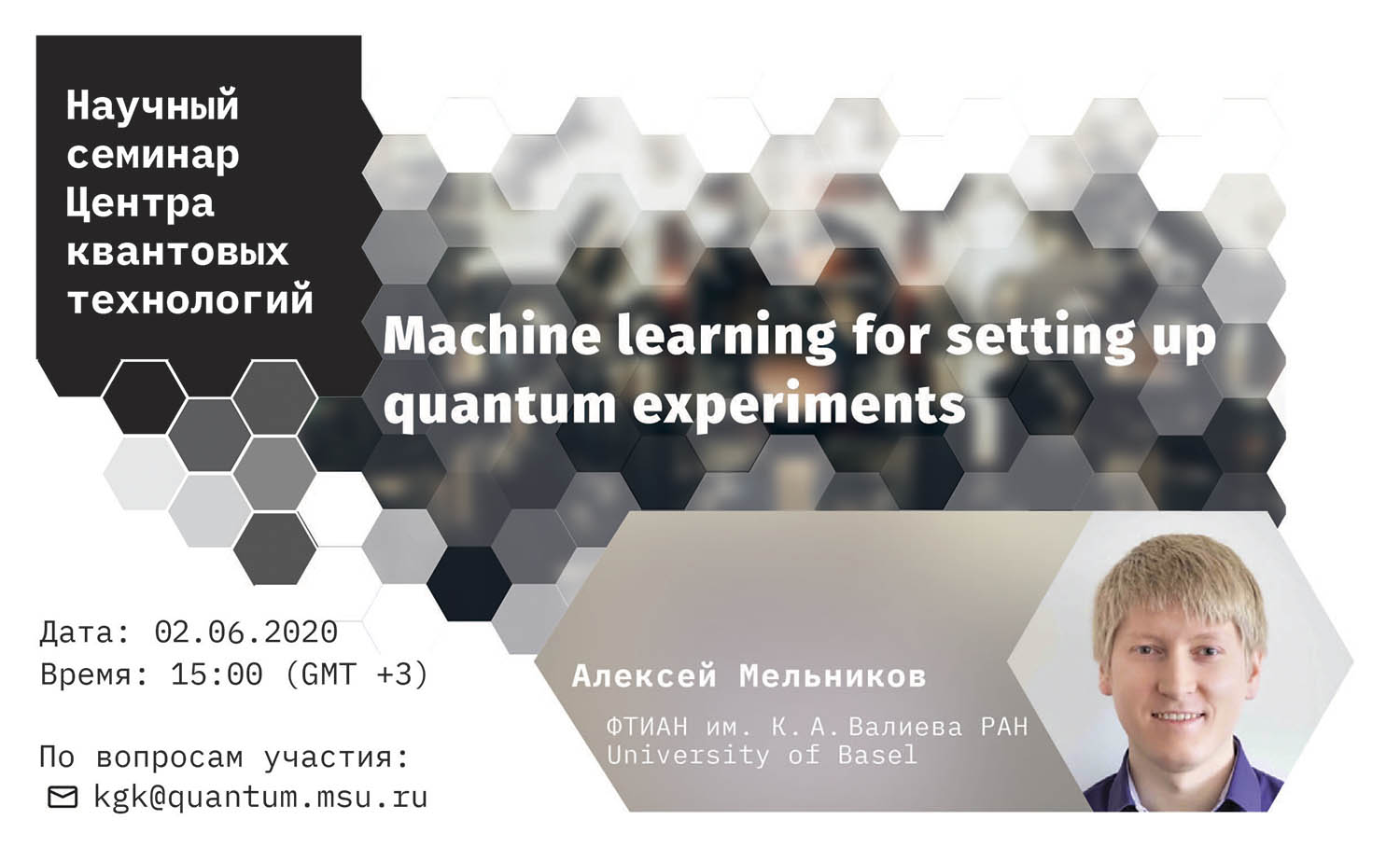
Today machine learning plays an increasing role in many aspects of scientific research. What is the role of machine learning in setting up modern quantum experiments? In the first part of my talk, I will show how reinforcement learning is now used to design new photonic quantum experiments for three-photon entangled states generation and for violating Bell-CHSH inequality. In the second part, I will show how we design quantum systems via supervised learning to achieve quantum walk advantages.
Quantum Thermodynamics and phase conjugation with structured light beams
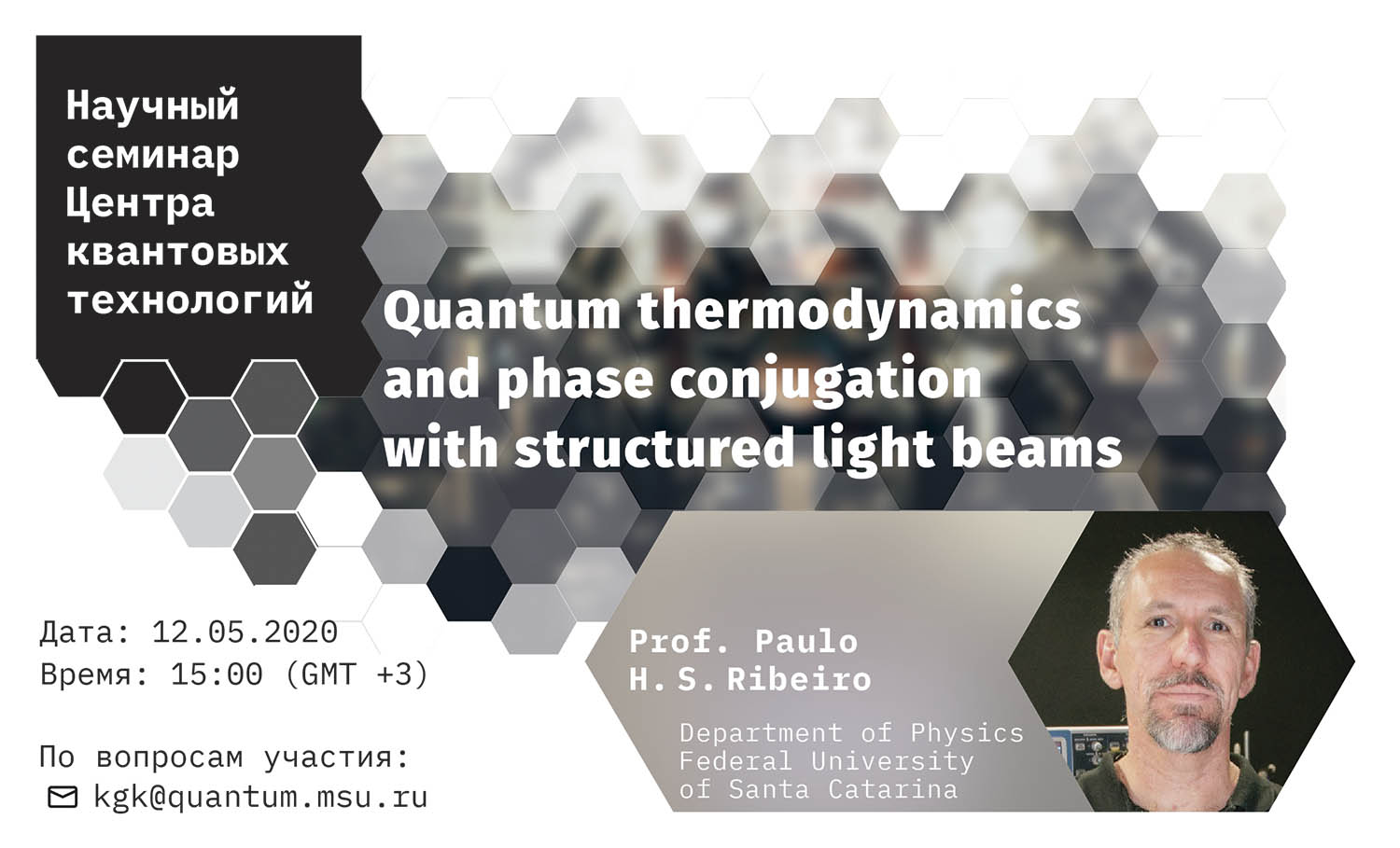
In this seminar, I will talk about recent works realized by our group with emphasis in two topics. The first one concerns the use of light beams and photons with orbital angular momentum, for the experimental study of Quantum Thermodynamics through the investigation of fluctuation relations, namely the Jarzynki and generalized Jarzynski fluctuation relations (To appear in PRA - arXiv:1912.06447v2 [quant-ph]). The second one concerns the study of phase conjugation for structured light beams. Phase conjugation is a very interesting effect discovered in the early days of non-linear optics, which is related to the temporal eversion of the propagation of light beams. The concept initially applied to the wavefront was generalized for the polarization аnd we have studied the combined effect in vector vortex beams (ACS Photonics 2020, 7, 249−255).
Scale-up quantum technologies with solid-state single-photon sources
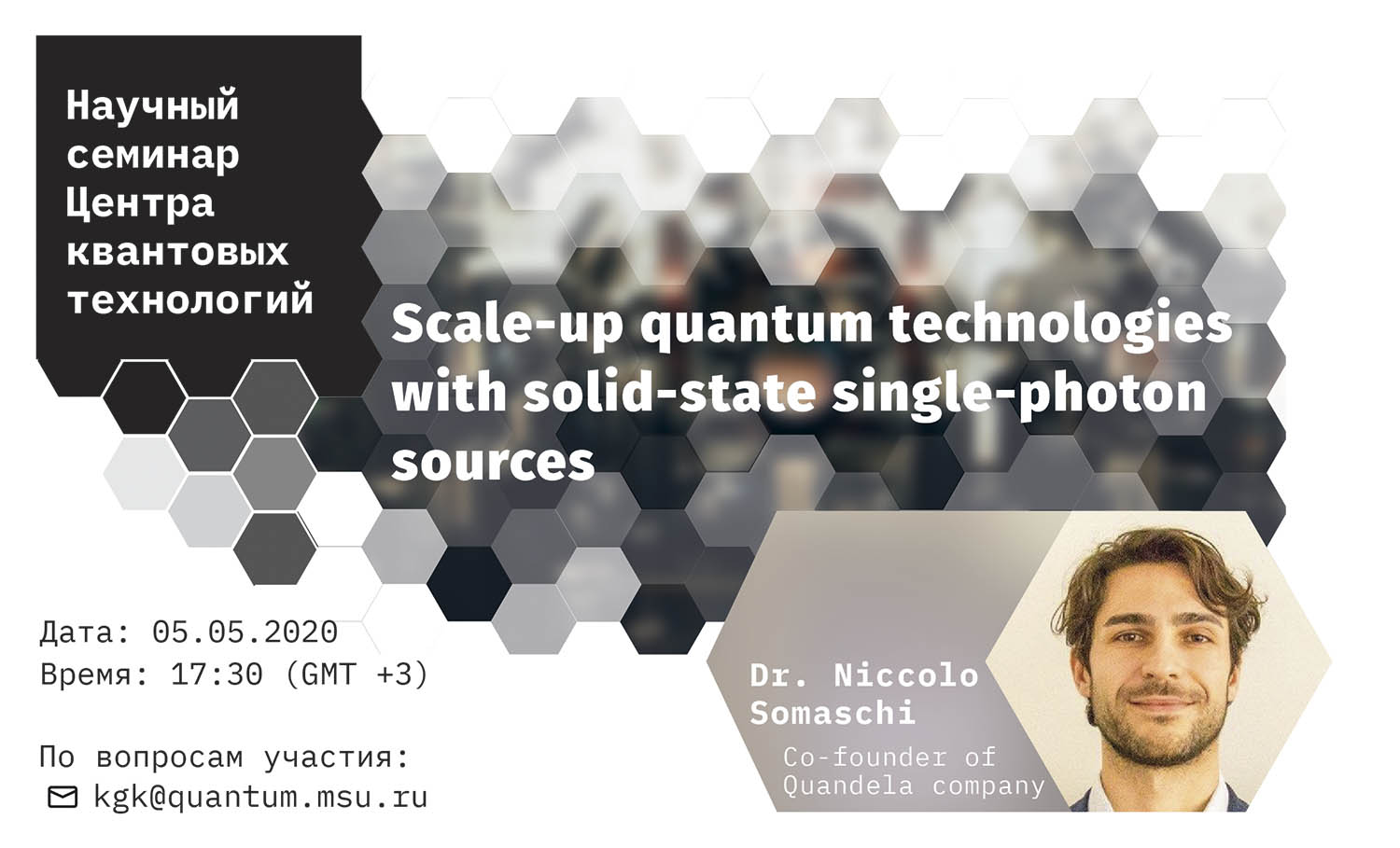
In the past years, with the advancement of quantum technologies, quantum optics have consolidated its central role within the different applications, ranging from quantum computing to quantum communication and quantum metrology.
Together with integrated circuits and detectors, single-photon sources represent a key enabling technology which can lead to the scale-up of different protocols toward practical and useful implementations.
In this talk I will introduce the technology of solid-state emitter, working principle, performance and challenges for improvement and highlight recent implementations focused on multi-photon interference.
Constructing the Wigner quasiprobability distributions of finite-dimensional quantum systems
The report is devoted to the formulation of the Wigner functions (WF) method for the description of finite-dimensional quantum systems. It is shown how the Stratonovich - Weyl correspondence rules can be reformulated as the “master algebraic equations” on the spectrum of a self dual Stratonovich-Weyl (SW) kernel of the Wigner - Weyl mapping between the Hilbert space operators and functions on a phase space corresponding to an N-level quantum system. Our generic approach in constructing the SW kernel doesn't use any specific symmetry of quantum mechanical system under consideration. The form of the master equations gives rise to an interesting duality between the space of the states of a quantum mechanical system and the space of SW kernels. Although, the ambiguity of the choice in the SW kernel, dictated by the master equations is going to be analyzed through the detailed description of the corresponding moduli space, the question of a physically motivated fixing of the SW kernel remains an open problem. A general scheme will be exemplified by constructing Wigner functions of a single qubit (N=2), qutrit (N=3) an quatrit (N=4).
Uncomputability and complexity of quantum control
Quantum control is actively developed nowadays due to various existing and prospective applications in quantum technologies. For example, in quantum computing it is used for high fidelity gate generation. We study computability of quantum control problems in the real experimental situation when the number of available controls is finite. For this situation we show that quantum control problems are in general not algorithmically solvable. There is no algorithm which could decide if a given quantum problem has optial solution or not. To prove this statement, we develop a technique based on establishing the equivalence between quantum control problems and Diophantine equations, polynomial equations with integer coefficients and integer unknowns. In addition to proving uncomputability, this technique allows to construct quantum control problems belonging to different complexity classes. In particular, an example of the control problem involving a two-mode coherent field is shown to be NP-hard, contradicting a widely held believe that two-body problems are easy.